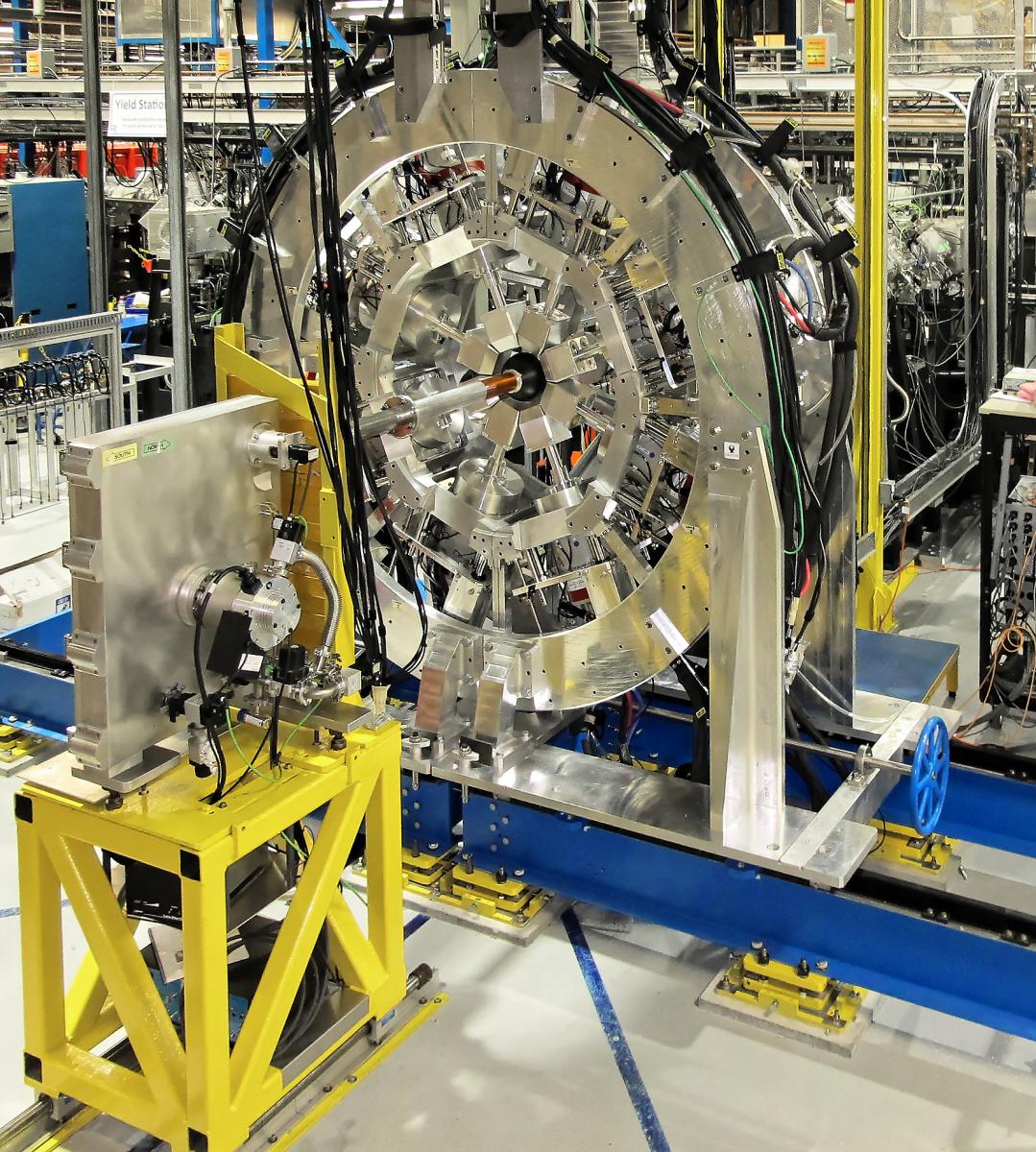
On May 29, 2015, Minister of State (Science and Technology) Ed Holder and the Canada Foundation for Innovation awarded more than $333 million to support competitively-funded research initiatives across Canada.
TRIUMF congratulates the winners of this competition. As Canada’s national laboratory for particle and nuclear physics, and owned and operated by a consortium of Canadian universities, TRIUMF is home to many collaborations and experimental facilities in fundamental physics.
TRIUMF applauds the successful proposals led by the University of Victoria, Carleton University, the University of Calgary, and the University of Guelph.
The University of Victoria, awarded $13.6 million for phase two of the Advanced Rare Isotope Laboratory (ARIEL) at TRIUMF.
The first phase of ARIEL, completed in 2014, constructed one of the world’s most advanced superconducting particle accelerators, as well as a new building to house them. This second phase will add capability to produce a wide variety of rare, or exotic, isotopes. It will strengthen Canada in particle and nuclear physics, and materials science. It will also produce medical isotopes, which are used to diagnose and treat disease.
“We have designed a one-of-a kind accelerator that will allow us to pursue the science in which TRIUMF is currently a world leader,” says University of Victoria physicist Dean Karlen, who leads the nineteen-university, ARIEL II consortium. “It’s exciting for us and for future generations. They’ll come up with new ideas on how to use this technology that we haven’t even thought of yet.”
–University of Victoria press release.

The newly constructed Advanced Rare Isotope Laboratory at TRIUMF.
Carleton University, awarded $6.1 million towards detector infrastructure for the ATLAS project.
The ATLAS detector, based at CERN, is the largest volume particle physics detector ever constructed, and was one of the apparatus that enabled the discovery of a Higgs boson in 2012. In order for ATLAS to extend its physics reach and enable the exploration of critical questions such as the origin of mass and the nature of dark matter, novel instrumentation as well as new infrastructure must be developed.
This investment will enable the state-of-the-art components to be built and installed by Canadians in the ATLAS detector. These elements are needed to retain the ability of the ATLAS detector to efficiently filter the billions of collision events that occur every second for later analysis.
This high-profile international project provides a rare opportunity for hands-on training for young Canadians, and will have an enduring impact in inspiring both technological innovation and education for all citizens about the nature of our universe. This project includes researchers from McGill University, Simon Fraser University, the University of Victoria and TRIUMF.
–Carleton University press release.

A prototype of the new muon wheel infrastructure for the ATLAS detector.
The University of Guelph, awarded $1.4 million to complete construction of the GRIFFIN instrument (Gamma-Ray Infrastructure for Fundamental Investigations of Nuclei) at TRIUMF.
Carl Svensson heads a national team of researchers at institutions including the University of Guelph, Simon Fraser University, Saint Mary’s University, Université de Montréal and TRIUMF.
The new instrument will allow these researchers to explore everything from subatomic particles to the origins of the universe. This sophisticated device will boost Canadian research and innovation in medical imaging, nuclear medicine, nuclear energy and monitoring of radioactive material, and will help in training students and researchers, said Svensson.
–University of Guelph press release.
 Photograph of the GRIFFIN detector based at TRIUMF.
Photograph of the GRIFFIN detector based at TRIUMF.
The University of Calgary, awarded $6.3 for the ALPHA-g experiment.
Based at CERN, the international ALPHA (Antihydrogen Laser Physics Apparatus) collaboration studies antihydrogen atoms, the antimatter counterpart of the simplest atom, hydrogen.
The original concept of the ALPHA-g device was conceived by TRIUMF researchers, with the aim of revealing the nature of gravity with antimatter. The detector for the ALPHA-g experiment will be developed, designed, and built at TRIUMF with members from the ALPHA-Canada team and then be shipped to the experiment at CERN.
The ALPHA-g project is the latest initiative by the ALPHA-Canada team, which has made leading contributions to the ALPHA collaboration. The ALPHA-Canada team includes researchers from Simon Fraser University, the University of Calgary, UBC, UVic, York University and TRIUMF. TRIUMF researcher Makoto Fujiwara leads the ALPHA-Canada team.
–University of Calgary press release.

ALPHA Canada team upon receiving the NSERC Polanyi Prize in 2013. (credit NSERC).
Congratulations to all!
